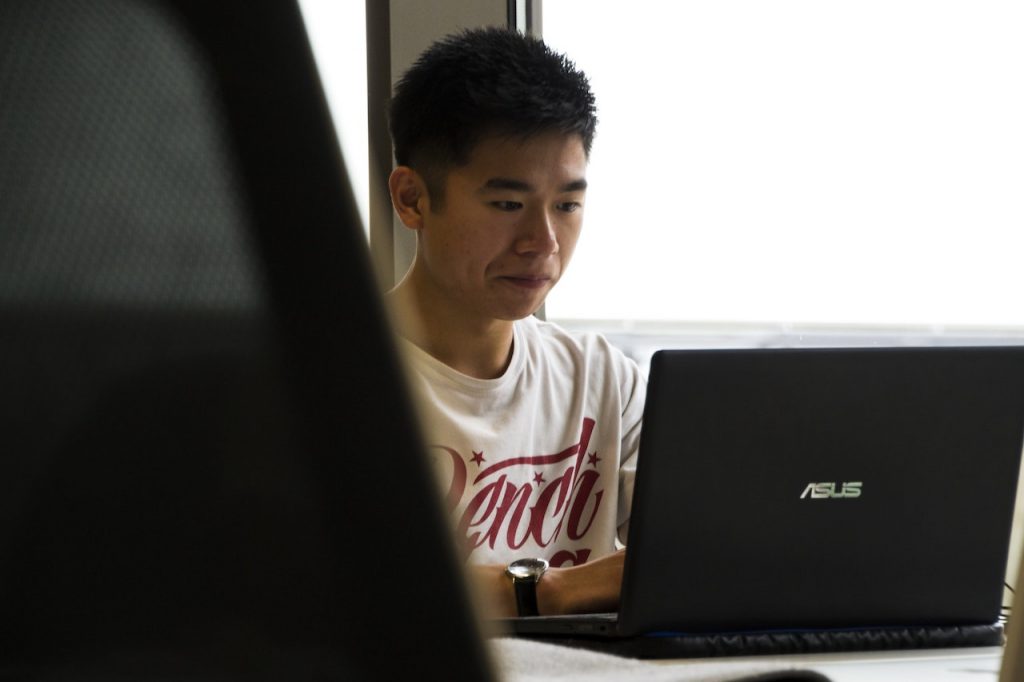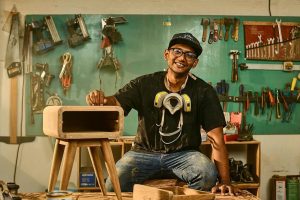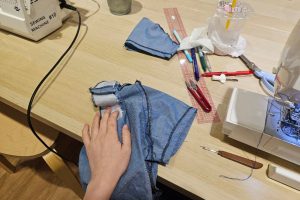“Mitochondria is the powerhouse of the cell.”
Ask anyone who’s been through Singapore’s education system and they’ll tell you this was probably something they learnt in a biology lesson. But aside from being a fun little factoid about eukaryotic organisms, and a shoddy opening line used by a sub-par writer, the phrase has also become quite the internet meme.
Meant as a tongue-in-cheek illustration of the impractical information taught in school, the meme’s popularity shows how different the working world can be.
After graduating with a business degree, I had no clue as to what I could do or what doors were now open. No “proper” research was done simply because I didn’t even know where to begin. My friends, like me, were fresh grads, and I had few contacts in any kind of respectable industry who could tell me more about actual work.
Honestly, it was sheer dumb luck that my editor pulled my sorry ass from the clutches of unemployment.
Few others, however, are as lucky.

Currently mirroring my past struggles with unemployment is 23-year-old Chan Jia Wen.
Sitting down with her in a café along Orchard road, Jia Wen shares that she graduated from the University of London slightly more than a year ago. In that time, she’s made little headway in landing a full-time job.
It’s not because she was a poor student who graduated by the skin of her teeth. On the contrary, Jia Wen’s grades were above average, and she attributes her results to pure hard work rather than an actual interest in the course material.
While she might hold a degree in accounting and finance, Jia Wen hopes she doesn’t have to use it.
“To be completely honest, every second of university was torture. I only studied finance to please my parents, both of whom work in the industry. Growing up, they would always tell me about stuff like financial reports and budgets but I was always more interested in learning about journalism and mass communication.”
Accorded the freedom after graduation to finally pursue her own interests, Jia Wen explains that the past year has been spent mostly doing freelance writing to better her portfolio, on top of finding out more about the industry she hopes to enter.
“I think a lot of people think I’m foolish for not putting my degree to good use,” she says.
“I mean, it’s just a safety net. I could probably get a job in finance but trust me, after you’ve spent years studying something you don’t like, why would you want to do that for the rest of your working life?”
Like me, Jia Wen agrees that the lack of readily-available information is hugely frustrating. Most of her university mates are either in banking or insurance, and can offer little in terms of career advice. Everything she knows is self-taught from forums, and Jia Wen regularly attends job fairs, although she laments the lack of mentorship opportunities available.
“At this age, you just don’t have the contacts required, and there’s so much I don’t even know how to know. I haven’t figured out how to improve my writing either because everyone’s too busy with their own work to guide me or give me feedback. It’s really tough but hopefully, things will fall into place. Soon.”

For Ms Faith Yeo, everything fell nicely into place, although she insists it was largely due to chance rather than her own gumption.
Having graduated from Singapore Management University (SMU) in 2013 with a degree in business, the marketing major is now a senior associate in public relations (PR) for a leading e-commerce platform in Singapore.
But things could’ve been very different.
When applying for university, Ms Yeo considered reading law. Her friends advised her against it because of an “oversupply of lawyers in the job market”, and fearing the prospect of being an unemployed lawyer, she opted for business.
In Ms Yeo’s first year in SMU, her chosen course exposed her to foundation modules such as financial and management accounting, with a few marketing ones thrown into the mix. It was then that an interest in advertising was born.
Laughing, Ms Yeo shares the complicated story of how she got to where she is today.
“It wasn’t that I liked marketing. I just sucked at everything else. I got Fs for the purely business mods and didn’t do well with numbers. Since I could write, I chose to major in something that I was at least decent at.”
When SMU’s internship programmes opened, Ms Yeo applied for advertising internships at major firms, and confident that she’d be offered a position, also applied for a six-month leave of absence from school.
Unfortunately, she got one but not the other. Facing the possibility of wasting half a year, Ms Yeo then grabbed the first internship that came her way via a friend who knew there was a vacancy in a big-time PR (Public Relations) firm.
“I think not many people want to do PR simply because nobody knows what PR is until you get into it. For example, people might say they want to do business or work in a bank, but what exactly their role is in the bank, they don’t know until they get in. Even for me, I didn’t understand what proper PR was until I learnt on the job.”
Upon graduation, Ms Yeo then continued in the industry because she was reluctant to start from scratch again.
“I don’t know how I would have done research or how well I would be able to research,” she tells me.
“I didn’t consult professionals in the industry because I wasn’t actually friends with any of them and didn’t know who to approach. In the agency, people tended to hang out with others of their own age and we were all asking the same questions. Besides, no one really talks to the interns anyway.”
Looking back, Ms Yeo also says she wasn’t well prepared for her duties and the workload. She remains grateful for the holistic development and soft skills she learnt in school, but that said, there isn’t much in her current line of work that she attributes to her textbooks or lecturers.
“I don’t think classes are what really tells, or lets you know what you want to do. It’s more of work experience and internships.”
Indeed, Ms Yeo’s advice for fresh graduates entering the job market would be to do as many internships as they can, everywhere.
“They should do different internships so they’ll learn about the various industries and discover what they enjoy. They also shouldn’t do the same one year after year just to build experience. They can worry about depth after they’re sure of what they want to do. When you’re first starting out, range is by far more important.”

Finally, I speak with 37-year-old Mr Terry Wong, a graduate from the National University of Singapore (NUS)‘s department of Economics, to see if entering the job market was the same ten years ago.
Based on what the business manager of an international bank tells me, it wasn’t.
In fact, there was even less information about potential jobs, and he only got into banking because of an uncle who was already in the trade.
“I think compared to nowadays, there were even fewer career talks when I was back in secondary school. If I remember correctly, it was always the professions that were more well-known that were invited as well. Like doctors and lawyers, that kind of thing.”
Due to this lack of information, he decided to emulate his uncle and join him in banking. After consulting him on the necessary requirements needed for the industry, Mr Wong worked hard to pull his grades up, and chose his course of study accordingly.
He then shares that he didn’t face many problems finding a job upon graduation, thanks to the guidance he received. The transition from student to professional was smooth and any problems he encountered were swiftly rectified with a quick phone call to his uncle, whom he credits as his unofficial mentor.
Candidly, Mr Wong tells me that he’s sure strings were pulled and favours called in to land him an interview.
“I never asked him point-blank but in all my years of working, I can tell you that that’s how the world works. Is it fair? I don’t know. But I am very grateful,” he says, ending our conversation.

Honestly, I don’t know either.
But after speaking to the three Singaporeans who are each at different points in their lives, what I do know is that having connections is extremely useful when uncertainty shrouds the fork in the road.
Too often, graduates enter the working world without so much as a clue as to what they’re getting themselves into. We don’t know what to expect from our chosen industry, nor what is expected of us.
This is of course assuming that we even know where our interests lie in the first place.
Getting the right job-fit on the first try is rare, and it’s no wonder job-hopping has become increasingly common. But this increased career mobility counts for nothing if we don’t have enough information on what’s out there.
What graduates really need is more exposure. We need to eliminate the guesswork and get in touch with working professionals from as many industries as possible. They’ve been where we are and play a crucial role in helping us discover what we want to do and what we have to do to get there.
From young, children are always told that they can be whatever they want to be. But as for how to actually do it, well, they’ll figure it out.
Without any help, do they really though?
Initiated in 2017, Todo Todo is an all-encompassing support for youth. Through the Youth Career Network, Career Discover and Mentorship Programmes that Todo Todo offers, youths can find out what you want to do, what you have to do, and learn from what others have had to do, as they transit from student to professional. Bringing together career profiling tools, the best industry minds, networking with HR leaders, and mentorship and job opportunities, and put together by those who have just been through the change, it is a real-life version of a career compass.
*All names have been changed to protect the identity of the interviewees.






